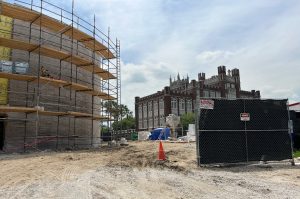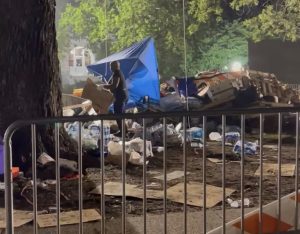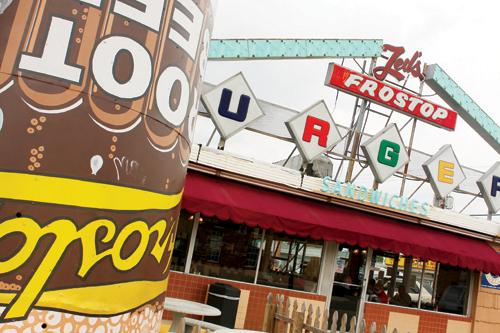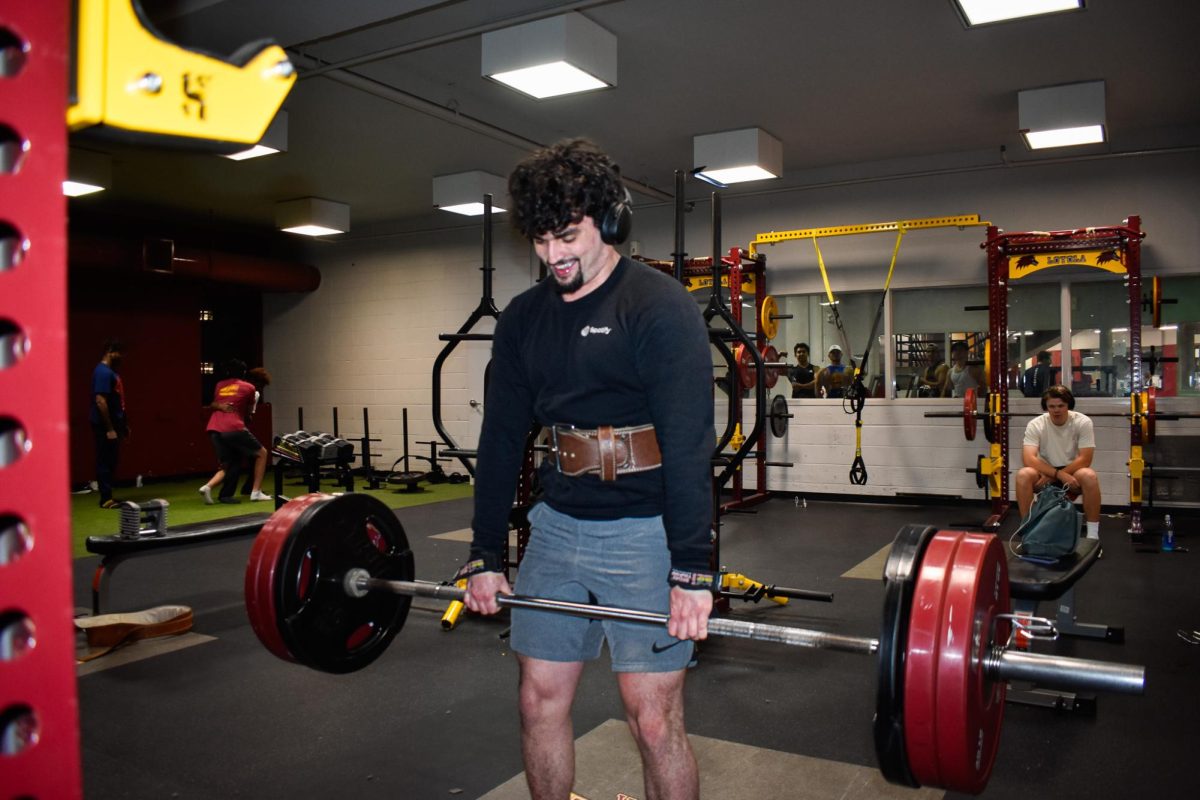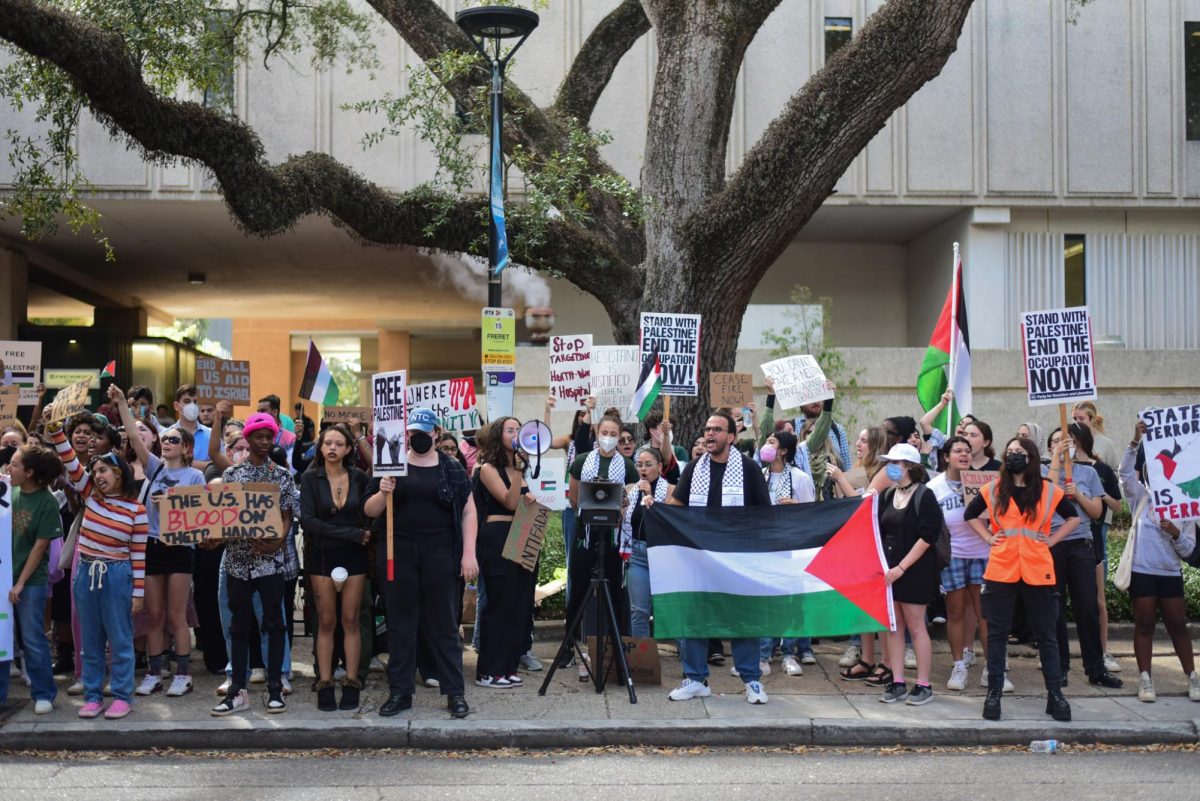Magazine Street, meet the far side of Calhoun.
Sure, it may not have the snazzy bars, flashy designer clothing boutiques or the upscale eateries that Magazine Street is well-known for, but it does have quality products that front a mom-and-pop store heartfelt appeal — an appeal that won’t put a hole in students’ wallets.
Dubbed the “Calhoun Corridor” by those that frequent there, this small stretch of businesses — ranging from a burger joint to an art supply store to even a barbershop/hair salon — along Calhoun Street after South Claiborne Avenue, offers simplicity and a variety of options designed to attract college students and neighborhood shoppers.
The “Corridor,” rather unnoticeable because of its position, extends from the tip of South Claiborne Avenue and Calhoun Street, where World’s Healthiest Pizza and State Farm Insurance are located, to Calhoun and South Tonti Streets. Most of the businesses appear to be run-down houses that are a part of the neighborhood behind the Corridor — not stores and restaurants. But the casual walker who stumbles upon the area will find businesses such as Frostop Burgers, Bubba’s Hair Salon, First Cup Cafe, Copy Center, Pyramid Cafe, Neoz iGaming and the Calhoun Grocery Store.
Some students have been to the stretch of stores, but are unaware of the name.
“Over the past three years that I’ve been here, I’ve only been on Calhoun Street maybe once or twice,” said Christen Rhody, music industries junior.
“I never knew that it was called the Calhoun Corridor,” she said.
Others have only heard of it in passing.
“I’ve heard people mention the Calhoun Corridor, but never put two and two together that they were referring to the shops and restaurants on Calhoun Street as the Corridor,” said Tracy Jones, visual graphic arts freshman.
While the Corridor offers one stop shopping, dining and lagniappe places with affordable prices for students, the area has experienced a decline in business and a smaller concentration of students over the past years.
Prior to Hurricane Katrina, Tulane’s dormitory Charles Rosen House was located directly across the street from the Calhoun Corridor. This dorm housed single, married and graduate students, as well as faculty and staff members.
Evane Charles, Tulane resident manager, said in an e-mail to the Maroon that resident students used the shops and restaurants daily due to the close proximity. But after the storm, the dorms were closed down due to major damages.
Since then, business hasn’t been as consistent, according to business owners in the area.
Lance Vigne, owner of the Copy Center, believes that the reason the flow of students has slackened is because the Corridor’s location is not quite so prime now that the Rosen House dorms have been torn down.
“Everything is more focused toward St. Charles, Freret and Magazine now,” he said.
“More Tulane students know about this area than Loyola students because Tulane’s campus extends all the way to the back near the baseball stadium whereas Loyola’s campus ends by Freret Street,” he said.
Other business owners believe that the area hasn’t been seeing much student traffic because students, discouraged by New Orleans crime rates, prefer to stay as close to campus as possible.
“I think it’s because of the mythology of crime around both college campuses,” said Brandon Meginley, manager of World’s Healthiest Pizza.
“There’s a stigma to it. Even if it is a high crime area, some things can be stronger in a person’s mind than it is in reality.”
One business substantially affected by the decline of students is First Cup Cafe. Coffee shop owner Mohsen Alikhani relies on coffee quality, low prices and word of mouth to attract new customers, instead of advertising.
“I hope that customers will come to my shop based on word of mouth because the prices that magazines and newspapers have to advertise is too expensive for small-business-owners to purchase,” Alikhani said.
“I’ve considered advertising, but right now I’m just struggling to survive,” he said.
Forstall’s, on the other hand, has seen increased sales. According to owner Paul Forstall, business has never been better.
“We get a lot of students coming through here. They compare prices with other art stores and see that we offer low prices so they just come back to my store,” he said.
Some students say they go to Forstall’s because it’s easy to access.
“Forstall’s receives a lot of business because it is convenient for Loyola students who don’t have transportation,” said Angel Perdomo, visual arts freshman.
“It’s in walking distance, unlike many of the other art supply stores,” she said.
According to its business owners and students who do frequent its sidewalks, this appeal of walking convenience, quality and low price is central to what the “Corridor” stands for. Although the stores there may not be as posh as the shops on Magazine Street, Calhoun’s simplicity, aimed at college students with fewer dollars to spend, may be an ideal spot for the next shopping trip. So take that, Magazine.
Craig Malveaux can be reached at [email protected].





